
The 2018 Science Standards of Learning Curriculum Framework provides a foundation of content knowledge and science and engineering practices that teachers or divisions should use when developing their own curriculum.

The 2018 Science Standards of Learning Curriculum Framework provides a foundation of content knowledge and science and engineering practices that teachers or divisions should use when developing their own curriculum.

This is a 4 day series of lessons designed to familiarize students with 3D design and computer aided design using Google SketchUp.
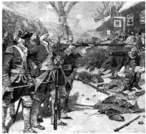
This inquiry focuses on the causes of the American Revolution in light of feelings of injustice among social classes. Students typically learn about the experiences of people during the American Revolution in simple categories such as loyalist and patriots. In reality, there were varied experiences that reflect social class, gender, race, and ethnicity. In this inquiry, students will learn about a variety of these experiences and how they may have impacted the events of the Revolution.
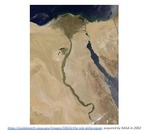
This inquiry focuses on the impact of the flooding of the Nile River on ancient Egypt, specifically the costs and benefits of the flooding. Through examination and analysis of various photographs, videos, and article excerpts, students will consider how these sources can be used to convey the impact of flooding on multiple groups of people in ancient Egypt.The questions, tasks, and sources in this inquiry asks students to learn about how Egyptian civilization grew by comparing the costs and benefits of the Nile River’s flooding. This inquiry highlights the following Virginia social studies standards.

This inquiry focuses on the government of Ancient Greece, specifically the creation of the Greek democracy. The questions, tasks, and sources in this inquiry asks students to consider the meaning of democracy and whose voices were heard in the original democracy and whose were not. Through analysis of videos, photographs of ancient artifacts, political cartoons and graphs students develop an argument supported by evidence that answers the compelling question, “Was Greek democracy a success?”
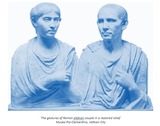
This inquiry focuses on the social hierarchy of ancient Rome, viewed through the lens of statues that tell us about life during this time. Through analysis of videos, photographs of ancient statues, and images of architectural reliefs, students develop an argument supported by evidence that answers the compelling question, “What stories should statues tell about ancient Rome?”The inquiry prioritizes depth over breadth: rather than broadly describe contributions across categories, the inquiry instead invites students to take a close look at the influence of ancient Roman art and architecture on statues and monuments today. Through this deep study, students will hone analytical skills required to notice and interpret details in art and architecture while also building their knowledge about the social structure that divided the citizens and enslaved people of the ancient Roman republic and empire.

This inquiry focuses on the question of whether Antebellum technology made life better overall for people and how certain inventions impacted groups of people differently. Four innovations—the cotton gin, mechanical reaper, steamboat, and steam locomotive—were particularly impactful in the 19th century. These inventions came about quickly as part of the First Industrial Revolution, which was marked by the movement from hand production to machine work. Many scholars view James Hargreaves’ 1760s invention of yarn-spinning machine, the spinning jenny, as the start of the Industrial Revolution. From that point forward, new technologies came along quickly. Beginning in in the 1790s, four inventions, the cotton gin, the mechanical reaper, the steamboat, and the steam locomotive, provided the impetus for rapid economic development for some, while at the same time increasing inequality and suffering for many.

CATCH Healthy Smiles is a program for grades Pre-K – 2 that is designed to improve the oral health of students by teaching about and encouraging proper toothbrushing and flossing techniques, a nutritious diet, and regular visits to a dentist.
Through the program, students learn about the major factors that cause tooth decay and develop the skills needed to maintain a healthy smile. The CATCH Healthy Smiles program is designed to help students:
* Discover the causes of tooth decay, including dietary choices and poor oral health habits in our oral health education programs;
* Develop skills for brushing, flossing, and choosing tooth-healthy foods & drinks;
* Recognize the importance of regular dental visits; and,
* Create personal oral health care goals.
CATCH Healthy Smiles was developed by researchers at the Michael & Susan Dell Center for Healthy Living at The University of Texas Health Science Center at Houston (UTHealth) School of Public Health, with funding support from the National Institutes of Health.

Summary of three-day event in which teachers centered on changing patters of agriculture that involved both classroom instruction and a field experience. Spectific curriculum topics included sustainability, urban agriculture, environmental ethics, and women in agriculture; skills such as formal observation, data collection, landscape analysis, speculation and spatial analysis; and processes such as climate change, economic development, and the Geo-Inquiry process. Contains links to numerous resources.

This module is designed for adult learners. It is part of a series of learning modules that encourage them to learn about a topic, consider how to integrate it into K-12 curriculum, and then create or apply their knowledge in some way. This module focuses on making and makerspaces.
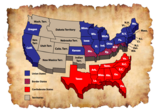
The goal of this module is to provide USII students with background knowledge in the Civil War as they begin the Reconstruction curriculum. Each day begins with a Hook for the day’s content. This hook is designed to engage students in the day’s content through a whole class or small group discussion. Students will independently review the provided Learning Resources for each Learning Intention. They should review all of the available resources to get a full understanding of this topic. Students will independently complete the Success Check for all Learning Intentions to receive credit for the module. There are optional Extension activities associated with each day. This extension is designed to connect USII Geography content with the Civil War content. Google Drive Folder with all resources (must make a copy of each resource to modify): https://drive.google.com/drive/folders/1jG7DTzswj3bsZM7xKHfMgJhVM07evQfN?usp=sharing Google Docs Lesson plan: https://docs.google.com/document/d/1ErmsDxexiKYJNbqz49QqIGAxuDHZ00O2NJ6B5X3caww/copy

This is an activity to reinforce the knowledge of clouds with students in middle and high school. This is designed to be used with Google Classroom easily or on paper. This activity will focus on helping students develop their observational skills, experimental process, and documentation. Students will take notes, create a foldable, perform an experiment, and keep a cloud log. This sections in this can be done individually as well. This was remixed from Cloud Inquiry Investigation & I.D. by Suzanne Bot provided by Science Education Resource Center (SERC) at Carleton College using the Creative Commons Attribution-NonCommercial-SharkAlike 3.0 license.US Department of Commerce, & Noaa. (2019, August 12). Ten Basic Clouds. Retrieved November 25, 2019, from https://www.weather.gov/jetstream/basicten.

This inquiry focuses on the myriad of injustices inflicted upon people of color during the colonial period, and how these early interactions and acts of oppression provided a foundation for the racial injustices still experienced in America today. From Europeans’ first contact with American Indians, to the subjugation of African slaves, a hierarchy based on race was imposed on all who lived in the New World.
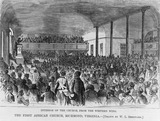
This inquiry focuses on the ways in which African Americans have been able to construct their own freedom in the face of injustice, violence, and white backlash following emancipation and in the era of Reconstruction and beyond. The questions, tasks, and sources in this inquiry ask students to examine the political, social, and economic successes African Americans were able to create for themselves, as well as the social, political, and institutional barriers that African Americans had to overcome in order to achieve these successes.

This inquiry provides students with an opportunity to examine nine of China’s most impactful innovations and their contributions to the modern world. These innovations and inventions fall into three categories: 1) Communication innovations including, written language, paper, and printing; 2) Military innovations including the Great Wall of China, gunpowder, and fireworks, and; 3) Economic innovations including, common currency, silk, and the Silk Road. The Communication innovations were the widest ranging chronologically with written language appearing in the Shang Dynasty (1,600-1,046 BCE) and paper-making not happening until 100 BCE in the Wu Dynasty and then printing in the Tang Dynasty in the 7th and 8th centurie CE. Military innovations unfolded first with early fireworks and the parts of the Great Wall of China in Qin Dynasty (221-206 BCE). Gunpowder was developed in the Tang dynasty (9th century) and began to be used in rockets in 13th century. but was mostly built in Ming (14th – 17th CE). Economic innovations go all the way back to 3,000 BCE with the development of silk. Three thousand years late the Silk Road begins to open up and common currency appears with the Qin in 3rd century BCE.
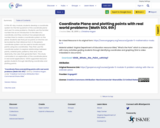
In this 40-day module, students develop a coordinate system for the first quadrant of the coordinate plane and use it to solve problems. Students use the familiar number line as an introduction to the idea of a coordinate, and they construct two perpendicular number lines to create a coordinate system on the plane. Students see that just as points on the line can be located by their distance from 0, the plane's coordinate system can be used to locate and plot points using two coordinates. They then use the coordinate system to explore relationships between points, ordered pairs, patterns, lines and, more abstractly, the rules that generate them. This study culminates in an exploration of the coordinate plane in real world applications. VDOE supported resource guides students through identifying coordinates and plotting points.
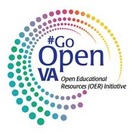
Recorded presentation regarding copyright, Creative Commons licensing, and education and how Virginia museums might assist teachers in professional growth and meeting the needs of their students.

This activity aims to engage middle-school students with cyberbiosecurity topics through a murder mystery-style puzzle. As the narrator, you will set the cybercrime scene and provide breadcrumbs along the way. Your students will serve as investigators, drawing connections between agricultural and computer science topics while they solve the crime. This activity is part of the Agricultural Cyberbiosecurity Education Resource Collection that contains resources for formal and non-formal agricultural educators working with middle school aged youth. Published as Open Educational Resources, all resources are provided in durable (pdf) and customizable (MS Word) formats. They are hosted on GoOpenVA in a unique resource collection, Ag Cybersecurity Virginia Tech, at https://goopenva.org/curated-collections/143 and on on Virginia Tech’s stable repository, VTechWorks at https://doi.org/10.21061/cyberbiosecurityThis work is supported by the USDA National Institute of Food and Agriculture, Women and Minorities in Science, Technology, Engineering, and Mathematics Fields (WAMS) Grants Program, award #2020-38503-31950.

This inquiry focuses on the concept of equality as defined by the Declaration of Independence and the rights enumerated within. The questions, tasks, and sources in this inquiry asks students to examine the evolution of our notion of “all men are created equal” and how we have lived up to (or not lived up to) that concept throughout the course of U.S. history.
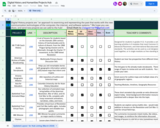
Digital History projects are "an approach to examining and representing the past that works with the new communication technologies of the computer, the internet, and software systems.” As of March 2024 there are over 80 projects in the Hub related to World History, US History, Geography, Economics, and Gov./Civics.
We hope you use, share, and send new projects we can add to the hub!
Email new ones to craigperrier19@gmail.com
Enjoy!